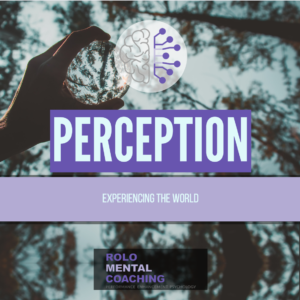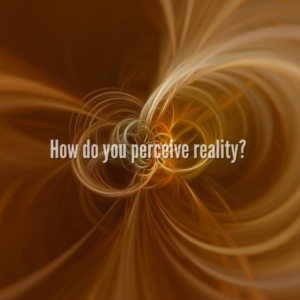RMC Weekly Blog: Experiencing The World

Perception is the sensory experience of the world. Environmental stimuli and actions all await our response to these stimuli. We gain information about the properties and elements of the environment around us through the perceptual process.
Crudely put, it is an intellectual process of transforming sensory stimuli into meaningful information. It is the process of interpreting something that we see or hear in reality or our mind and then using it to judge and give a verdict on a situation, person, group, etc.
Some people say perception is awareness, comprehension, or an understanding of something. The process of perception is most commonly dissected into the following stages: stimulation, organization, interpretation, memory, and recall.
Although we are rarely conscious of going through these stages distinctly, they do determine how we develop images of the world around us.
Perception also refers to the mental processes that we use to form impressions of an event, situation, or person we are dealing with. This includes not just how we create these impressions, and the different conclusions we make about the information that we are receiving.
Perception not only creates our experience of the world around us; it allows us to act within our environment. Perception is very important in understanding behavior because every person perceives the world and approaches life challenges differently.

What affects our perception?
Family habits and beliefs, needs, peer groups, the focus of attention, and expectations all influence our perception.
Some professional psychologists say that perception is not a skill and that it is a passive innate process. We, at Rolo Mental Coaching, approach this with a different view. Even though this process exists in every natural healthy human being, we do believe that this “skill” can be trained. We have measured considerable changes in our clients’ lives and their subcultures when we work towards a heightened awareness of the self and their surrounding information. When a person is trained to approach situations from several perspectives, more information is gathered leading to a higher outcome of successful decision making. This process, at first takes a considerable amount of concentration and effort on the part of the clients. However, over time they report that certain aspects of decision-making are becoming automatic. This is what we are looking for in our coaching of high-performance clients. We want these skills to operate on the same automaticity as walking, brushing teeth or any skill one does not really think about anymore. It has become a part of our automatic operation skills. We believe that this is possible for a “passive skill” like perception as well. It takes some time, and patience is needed. Especially if you come from a background with rigid set-mind-like thinking or if one was in a peer group where a certain status quo was maintained. This all can change once a person learns perception-altering skills that a based on logic and facts.
We often say to our clients “reality does not care about your interpretation, it will do what it wants anyway”.
So, what does reality throw back at you? What lesson is it trying to teach you to help you become the best version of yourself?
Rolo Mental Coaches are specialists in high-performance coaching.
Follow us on Instagram and FaceBook.
If you are interested in working with RMC, feel free to reach out to us via our contact page by clicking here.

